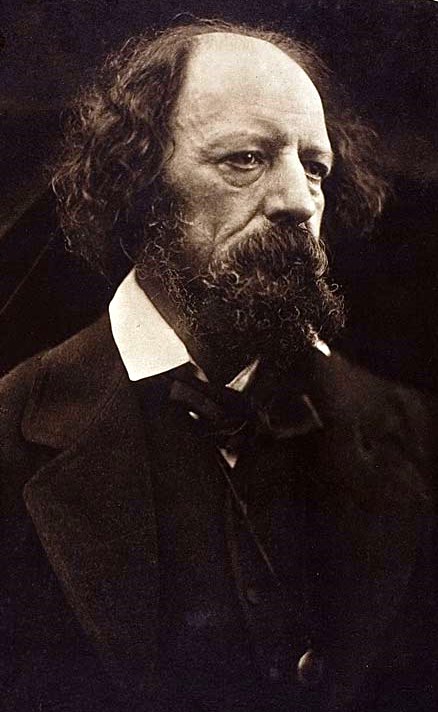„Lepiej jest kochać i stracić osobę kochaną, niż nie kochać w ogóle.”
Inna wersja: Lepiej jest kochać i utracić, niż nigdy nie zaznać miłości.
Sir Alfred Tennyson – największy poeta postromantyzmu wiktoriańskiego, uhonorowany tytułem „poeta laureatus”. Wikipedia

„Lepiej jest kochać i stracić osobę kochaną, niż nie kochać w ogóle.”
Inna wersja: Lepiej jest kochać i utracić, niż nigdy nie zaznać miłości.
„Na szukanie lepszego świata nie jest jeszcze za późno.”
Źródło: Wacław Idziak, Biznes, Koszalińskie Wydawnictwo Prasowe, Koszalin 1990, s. 111.
Źródło: Locksley Hall Sixty Years After (1886), Line 198
“Evolution ever climbing after some ideal good
And Reversion ever dragging Evolution in the mud.”
Źródło: Locksley Hall Sixty Years After (1886), Line 200
St. III
Ode on the Death of the Duke of Wellington (1852)
Part I, section xxii, stanza 2
Maud; A Monodrama (1855)
“She with all the charm of woman,
She with all the breadth of man.”
Źródło: Locksley Hall Sixty Years After (1886), Line 48
Song, Act I, Scene ii
The Foresters, Robin Hood and Maid Marion (1892)
St. IX
Ode on the Death of the Duke of Wellington (1852)
Part I, section xiii, stanza 2
Maud; A Monodrama (1855)
“For it was in the golden prime
Of good Haroun Alraschid.”
Recollections of the Arabian Nights, stanza 1, from Poems, Chiefly Lyrical (1830)
“All the windy ways of men
Are but dust that rises up,
And is lightly laid again.”
" The Vision of Sin http://home.att.net/%7ETennysonPoetry/vs.htm", sec. 4 (1842)
To Mary Boyle, reported in Bartlett's Familiar Quotations, 10th ed. (1919)
" The Mystic http://www.fullbooks.com/The-Early-Poems-of-Alfred-Lord-Tennyson9.html" (1830)
St. 4
The Revenge (1878)
“For this is England's greatest son,
He that gained a hundred fights,
And never lost an English gun.”
St. VI
Ode on the Death of the Duke of Wellington (1852)
From The Ancient Sage (1885), lines 72-77
“We are ancients of the earth,
And in the morning of the times.”
The Daydream: L'Envoi, lines 231-32, from The Complete Works of Alfred Tennyson (1879)
From The Ancient Sage (1885), lines 37-39
The Lover's Tale (1879), line 815
Act iii, scene 4
Queen Mary: A Drama (published 1876)
St. 2
The Revenge (1878)